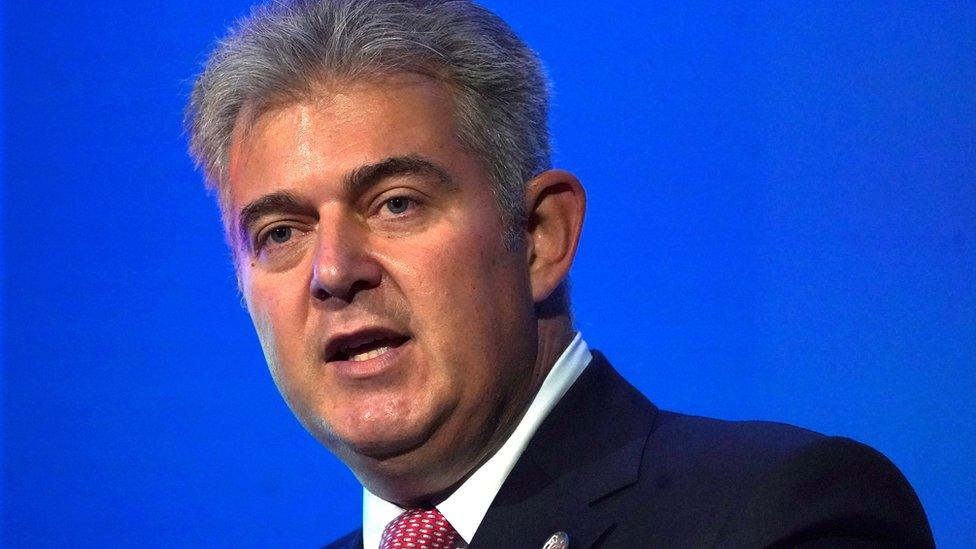NI Troubles legacy plan 'cuts off pathways to justice', says Mercer
- Published
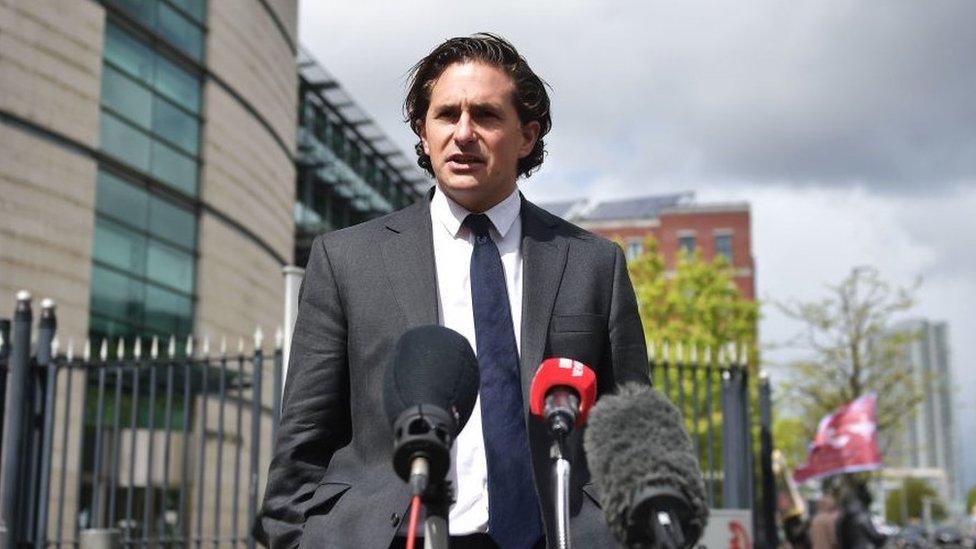
Conservative MP Johnny Mercer says he does not know if he will support the legislation in Parliament
A former defence minister who left the government over the prosecution of former soldiers says he is concerned NI amnesty proposals go too far.
Conservative MP Johnny Mercer said the plans were "cutting off pathways to justice for British citizens".
Mr Mercer told BBC NI's Spotlight that would be a "huge step", regardless of potential crimes committed by paramilitaries or the security forces.
The former Army officer said he was not happy with the proposals.
He indicated he did not know if he would support the legislation when it comes before Parliament.
Mr Mercer made the remarks in a BBC NI Spotlight programme on the controversial government plans, which would end Troubles-related prosecutions, inquests and civil court challenges.
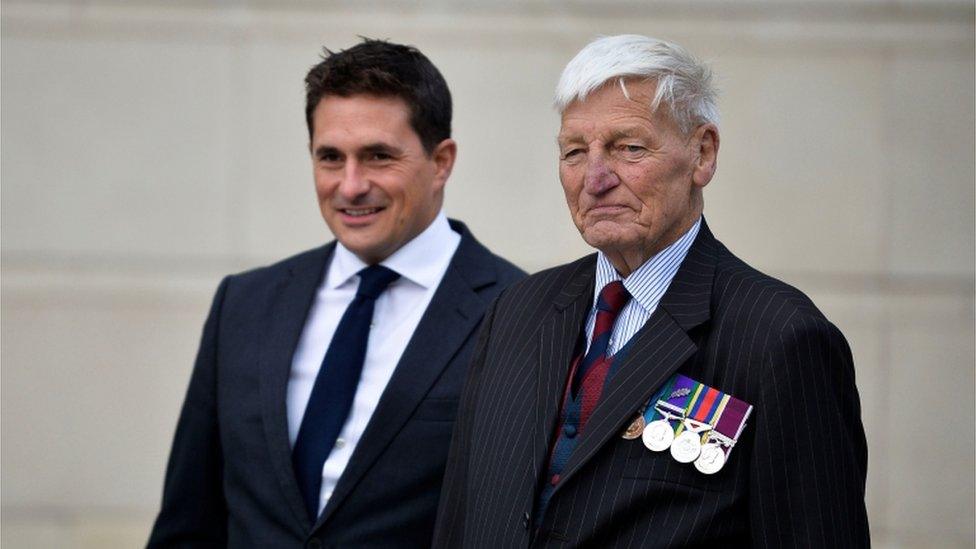
Johnny Mercer has supported former soldiers including the late Dennis Hutchings
Last week the Northern Ireland Office signalled that the legislation has been delayed until next year.
Mr Mercer has been a supporter of former soldiers who have faced prosecution for Troubles-era killings, including Dennis Hutchings, who died in hospital in October while on trial in Belfast over the 1974 shooting of John Pat Cunningham.
In 2019, the Plymouth Moorview MP was appointed as a defence minister to the newly-formed Office of Veterans' Affairs, tasked with developing legislation to protect formers soldiers from prosecution.
But he left the government in April because protections for soldiers in the Overseas Operations Bill had not been extended to Northern Ireland veterans.
Number 10 said Boris Johnson had accepted his resignation, but Mr Mercer said he had been "relieved of my responsibilities".
'All I've ever advocated for is fairness'
In July, the prime minister announced the planned legislation, which he said would "draw a line under the Troubles".
The government says the legislation would "end judicial activity" related to the Troubles, including future prosecutions, more than 1,000 civil cases currently before the courts, and inquests.
Stormont parties and victims' groups oppose the plan.
Mr Mercer told Spotlight: "I have never ever in my seven years in politics ever advocated for an amnesty. I have never ever advocated for a time bar to prevent prosecution.
"All I've ever advocated for is fairness and I cannot make it any clearer than that.
"What the government has brought forward essentially is cutting off pathways to justice for British citizens who when they were killed by the British Army or indeed by the IRA, it is cutting off the opportunity to see justice for them and I think that is a huge step.
"It puts me in a very, very difficult position and I haven't decided what I'll do yet."
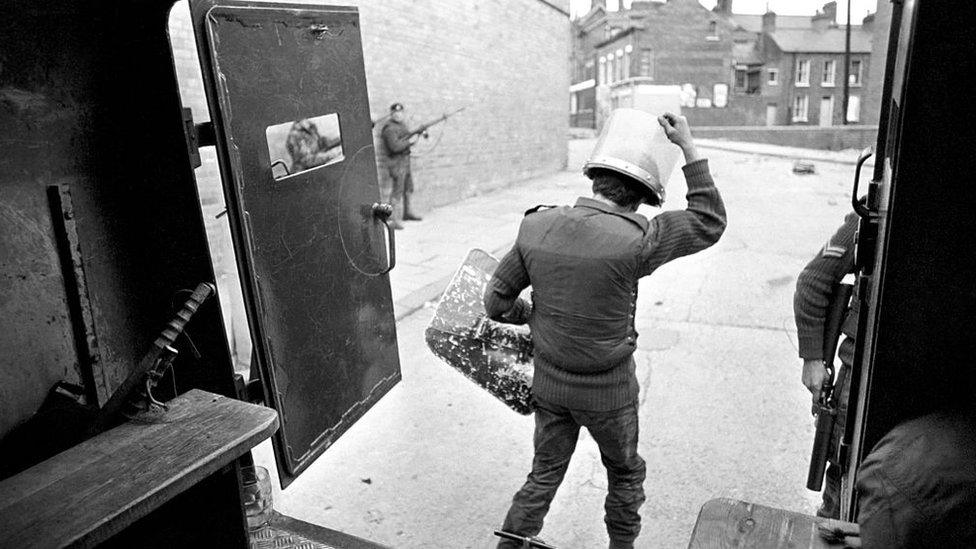
Dealing with the legacy of the Troubles has proved divisive but all Stormont parties oppose a statute of limitations
Northern Ireland Secretary Brandon Lewis had said the legislation would be put before parliament in the autumn, but on 2 December he said the deadline for legislation in this term would be missed.
"The reality is, I think, it's important to put the time in to try and find a way forward that can help Northern Ireland move forward," said Mr Lewis.
"If that takes a bit more time, then that's something we've been prepared to do, hence why we didn't deal with this earlier in the year and we were focused on trying to do something in the autumn, but we will do everything we can to try and find a way forward that works together."
Spotlight NI is on BBC One Northern Ireland on Tuesday 7 December at 22:35 GMT and afterwards on iPlayer.
Related topics
- Published23 September 2021

- Published14 July 2021
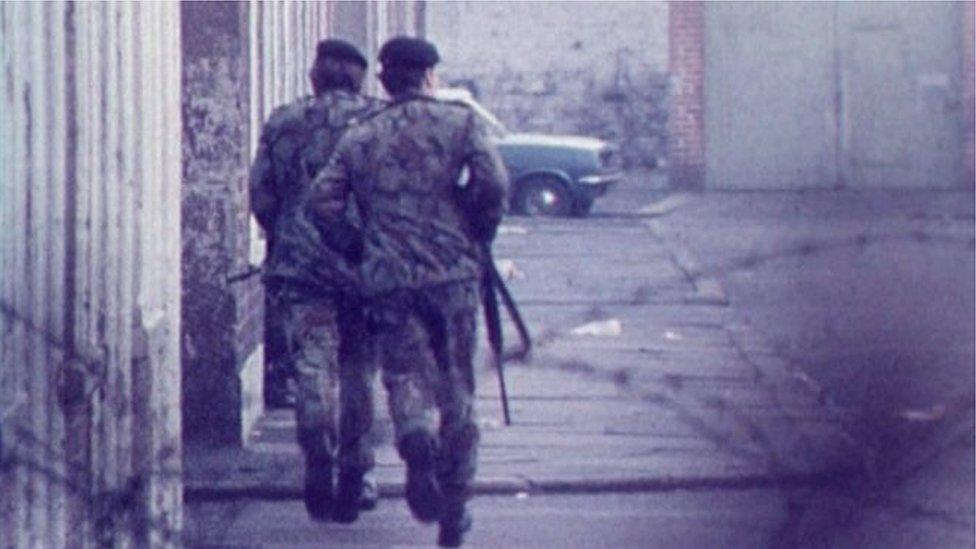
- Published2 December 2021
